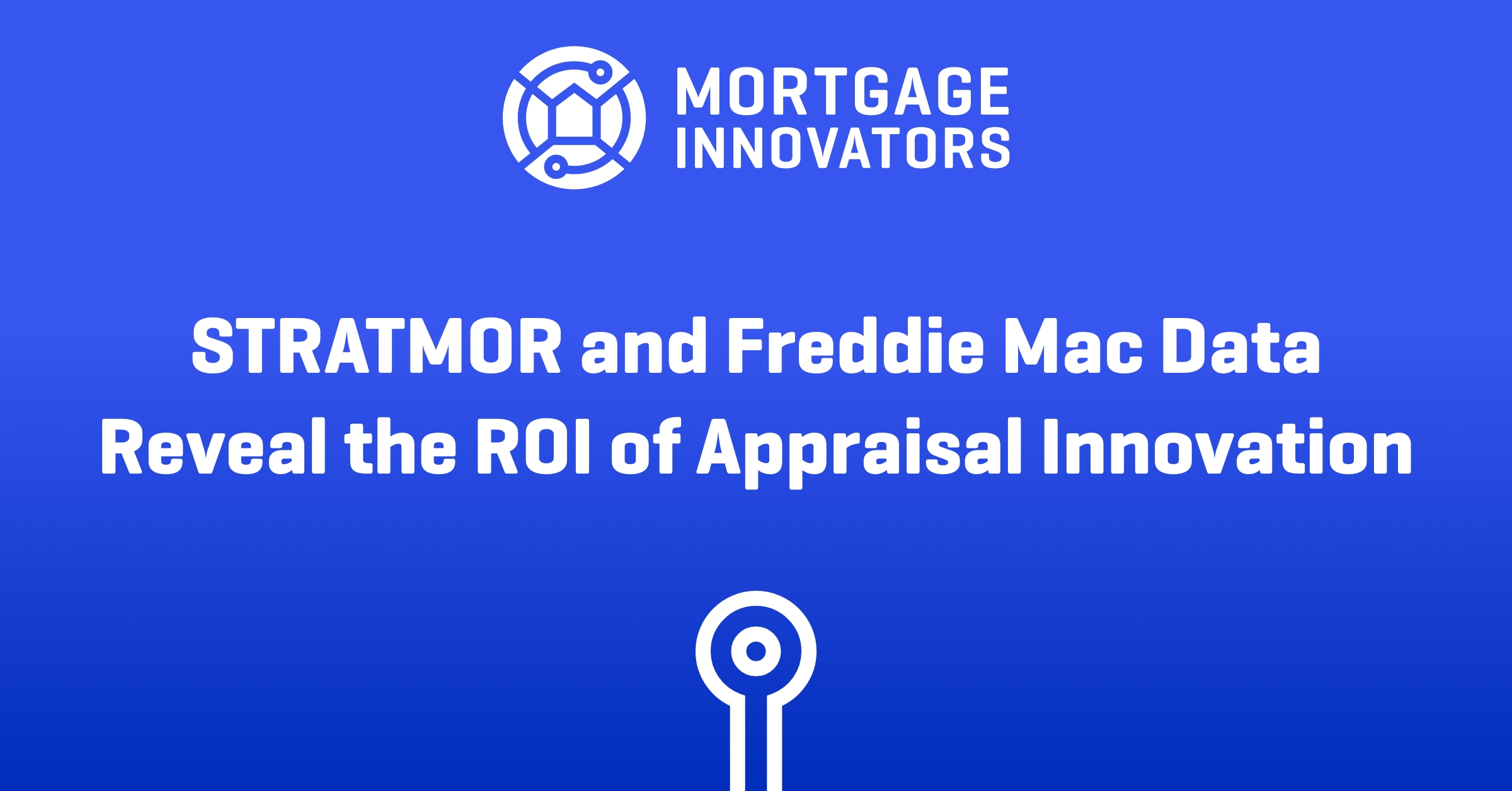Blog post by Reggora
A recent white paper produced by Reggora draws upon research performed in conjunction with the STRATMOR Group, along with GSE research and multiple case studies to delve into the business challenges upon which to build an accurate ROI for appraisal technology. The resulting benefits for Reggora users include a reduction in the average cost per mortgage loan of up to $258.
The white paper specifically reviews several appraisal process challenges mortgage lenders have addressed with technology, including:
- The actual time it takes to get an appraisal done
- The actual time it takes to review a completed appraisal report
- The fees paid to appraisers for loans that never end up closing
- The excess fees charged by appraisers after the borrower fee has been disclosed
- The actual time it takes to handle appraisal payments, billing, and accounting
- The time it takes to manage appraisal orders for every loan without adding headcount
- The cost of poor appraisal management to loan officers
- The cost of poor appraisal management to borrowers
The white paper also details the results of several other real-life examples. This article summarizes some of the most intriguing conclusions the data suggest by focusing on several of the problems lenders can use in their own ROI analysis.
Problem: It takes too long to get an appraisal done
In 2022, STRATMOR surveyed a wide range of mortgage lenders regarding their views/experiences with valuation and appraisal and found that the biggest time-waster is the order placement.

Reggora’s order management solution reduces a lender’s cycle time by two days. Freddie Mac’s 2022 Cost to Originate Survey shows that the cost of funds for each day a loan was in process daily cost of funds (hedging costs & carrying funds costs) corresponded to 0.075 basis points. Assuming an average loan amount of $285,000, one day of a lender’s cycle time costs the average lender about $21, and Freddie Mac’s 2019 pre-pandemic closing cycle time research showed an average cycle time of 40 days.
A privately-held regional bank in the southwest that the company highlighted in a recent customer story is a great example. The lender wanted to reduce cycle times but did not want to add people to its appraisal department. After implementing new technology, the bank was able to reallocate FTEs in the department to revenue-driving activities, but still was able to manage order allocation so effectively that it reduced its cycle time.
That same southwestern-based regional bank reduced the time it takes to manage an appraisal order and appraisal billing by 20%, saving $100,000 in FTE overhead.
Problem: It takes too long to review an appraisal
Regulators require the lender to review each appraisal report before using it to underwrite a new mortgage loan, but this takes time. Research indicates again and again it’s taking lenders far too long.
Reggora’s appraisal quality control solution reduces a lender’s review time by 82%. On average, across Reggora’s customer base, quality control took 45 minutes per appraisal prior to using their review solution.
Freddie Mac’s 2022 Cost to Originate Survey shows that the fully-loaded hourly cost of personnel (total comp + benefits + space/tech/corporate overhead allocation) associated with processing and underwriting, assuming 75% of each hour is productive, an hour of quality control costs the average lender $132.
Problem: Lost revenue as the result of uncollected appraisal fees
Lenders have found that loan fallout contributes to higher costs when appraisal fees cannot be collected from borrowers who walk away from a transaction or cannot complete it. This is happening more often as consumers complete applications with more lenders and then choose one to close with. The disappointing result is significant amounts of uncaptured revenue.
In the case of one prominent regional bank, technology that enabled seamless payment collection at the ITP saved the bank $125,000 annually, eliminating revenue leakage from uncollected appraisal fees.
Problem: Revenue loss resulting from appraisers raising their fees
When lenders disclose fees to the borrower and then later find that their appraiser has escalated the fee, they have the option of redisclosing the Change of Circumstance to the borrower and collecting the higher fee. But in 26% of transactions, appraisers issue a fee increase that doesn’t qualify for a Change of Circumstance. In these cases, the lender is completely stuck with the escalated fee, which costs $181 per loan on average. If you apply these industry averages to a lender whose volume is 10,000 loans per year, the result is $470,600 in losses, or $47 per loan file.
However, the white paper shares case studies indicating that the implementation of Reggora technology resulted in a reduction of revenue leakage from fee escalations by 65% without the need to issue a Change of Circumstance or increasing the risk of fallout. With 26% of appraisals impacted, that trims the impacted files down to 9.1% of total volume.









